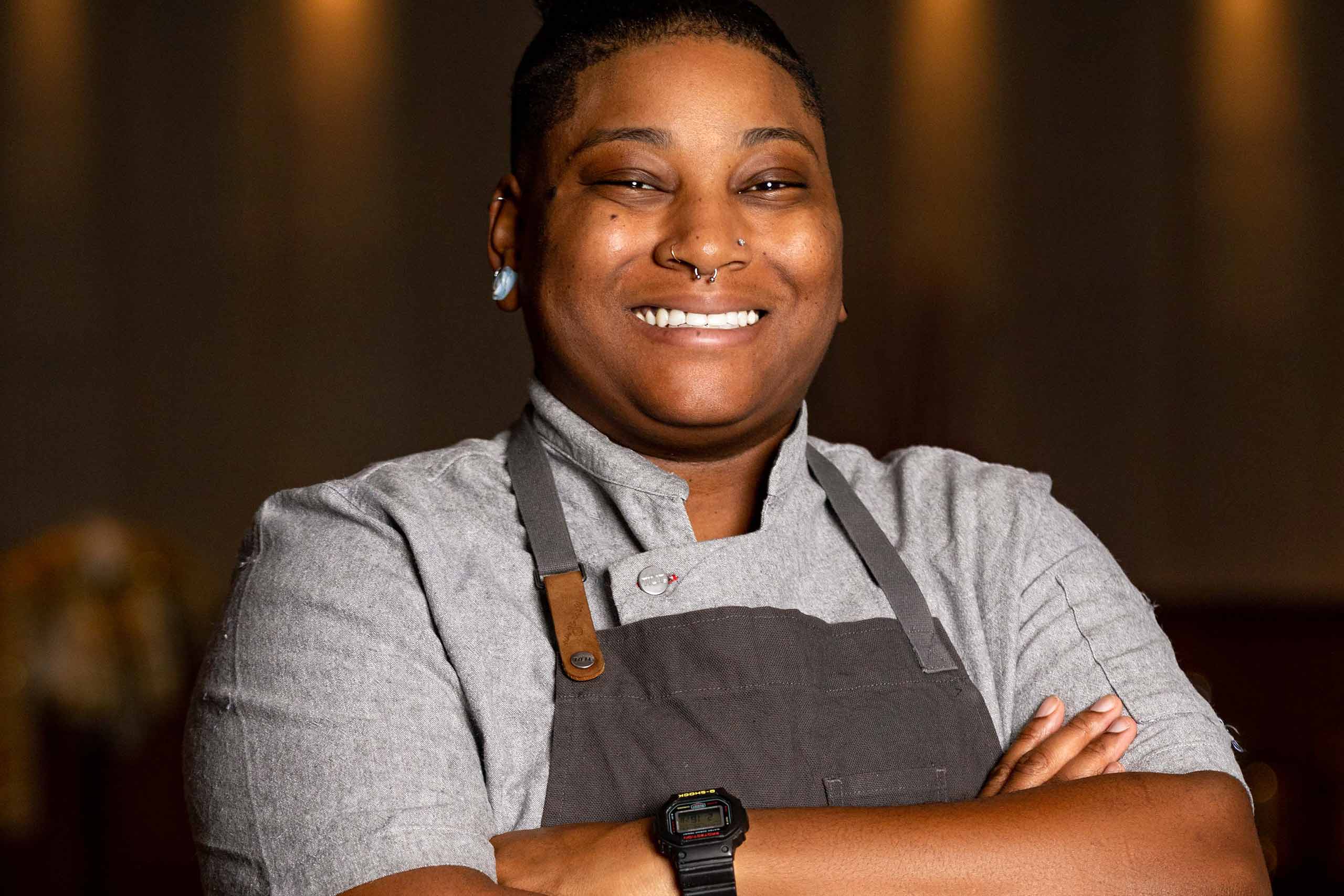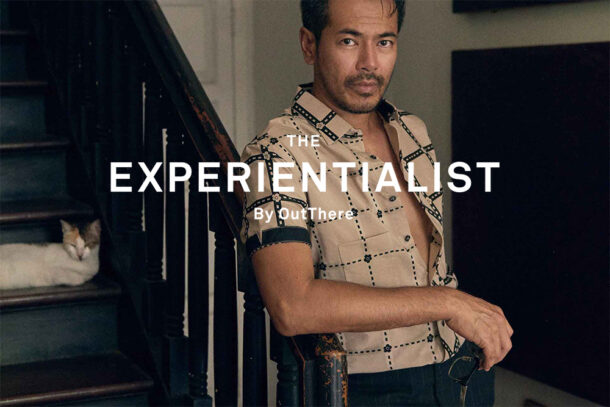Lateisha Wilson of The Miami EDITION was one of just five female chefs who participated in the Reykjavik Food and Fun Festival, which sees a select number of renowned chefs visiting the island nation to create imaginative dishes, earlier this year. With OutThere, she shares her diverse culinary influences and experience working her way up in the male-dominated restaurant industry.
When dining, it’s easy to focus on flavour rather than the astounding reality that the ingredients, spices, and preparation methods of each dish you consume directly reflect history and experience. Whether it comes from a Michelin-starred restaurant or a street vendor, the food that ends up on one’s plate is no less than a physical manifestation of culture and territory. It would make sense, then, for the culinary arts to embrace diversity. Yet professional kitchens have not always been welcoming or inclusive spaces for women or people of colour.
Members of marginalised communities who beat the odds to succeed in the restaurant world are carving out space for newcomers of similar backgrounds and pushing the industry toward much-needed evolution. This is the case with Chef Lateisha Williams, who brings both her African American and Native American heritage to her work as Chef de Cuisine at Matador Room, the signature restaurant of The Miami Beach EDITION, part of the hotel brand co-founded by hospitality legend Ian Schrager and known for its relevance in contemporary culture and design.
Chef Lateisha recently competed in the Reykjavik Food and Fun Festival as one of just a handful of female chefs. With OutThere, she discusses the festival, how her background and diverse culinary influences have shaped her career, and what she’s cooking up next.
Lateisha, can you tell us what got you into the restaurant industry and what your path was like between then and landing your current role?
Growing up, Sunday dinners were everything in my house. It was more than just a meal – it was a gathering of generations, storytelling over plates of food that blended African American soul with Native Cherokee staples. Those meals sparked my love for cooking. Later, spending time at my Latin American friends’ homes added another layer of flavour – literally. I became fascinated by how different cultures brought their own rhythm to the kitchen.
That curiosity led me to culinary school, then to kitchens across the U.S. and abroad, where I soaked in techniques and traditions. Eventually, all those influences shaped my style, and I landed at Matador Room, where I get to create dishes that reflect my heritage and the diversity I’ve embraced along the way.
How have both your multicultural upbringing and your experience of being a woman in a male-dominated industry shaped your career and personal development?
Growing up surrounded by different cultures, especially through family dinners and my Latin American friends’ homes, taught me the beauty of blending flavours and traditions. It showed me that food is a language that connects people, regardless of background.
Being a woman in a male-dominated industry has been both challenging and motivating. It pushed me to work harder, stay resilient, and lead with confidence. It’s shaped my approach to mentorship and collaboration – I want to uplift others who come from underrepresented backgrounds, just like I was supported by my community.
You were one of the few female guest chefs at the Reykjavik Food & Fun Festival this spring. What was that experience like, and how did you approach the challenge of cooking with only Icelandic ingredients?
This was the first year the festival featured a lineup of women chefs from all over the world, which made it even more powerful to be a part of. There was this incredible sense of camaraderie and shared purpose. We weren’t just showcasing our individual talents, but the cultures, histories, and stories behind our food.
For me, being able to bring Latin and Caribbean flavours to Iceland was such a treat. These are ingredients and flavour profiles I have access to every day, but in Iceland, they don’t have that same luxury. So the challenge was finding a way to translate those bold, soulful tastes using only Icelandic ingredients.
It was both exciting and a little scary. I had to be creative and lean on technique – like curing, smoking, and layering spice with native herbs or fermentation – to capture the essence of my dishes. When I saw how much people there enjoyed the warmth, depth, and spice of the food, it felt incredibly rewarding. It reminded me that flavour is a universal language, and even when ingredients change, the emotion behind a dish still comes through.
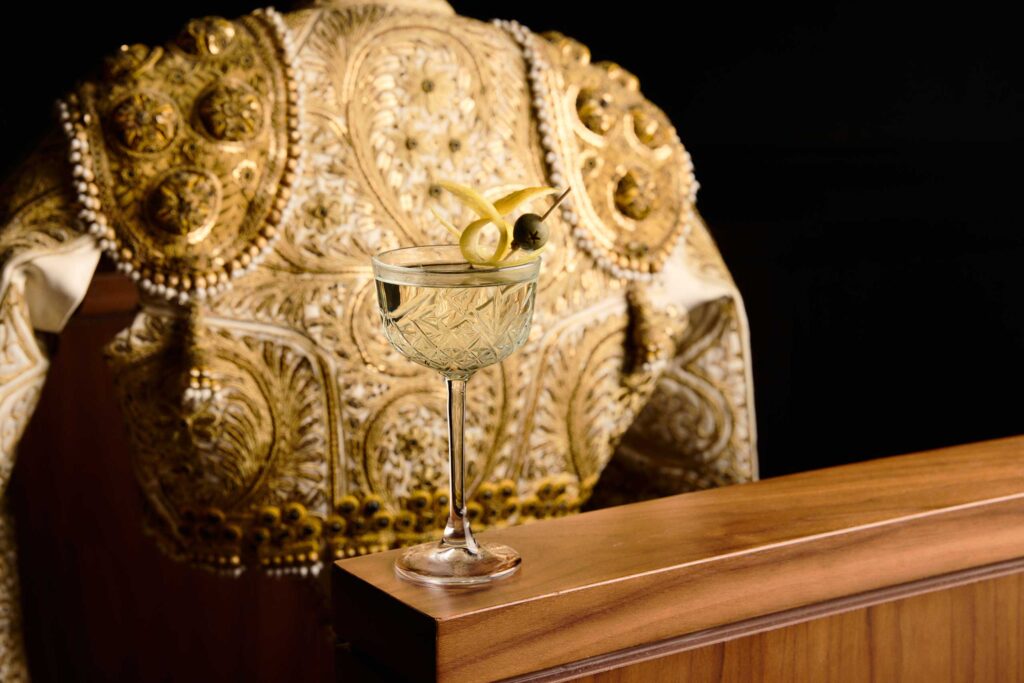
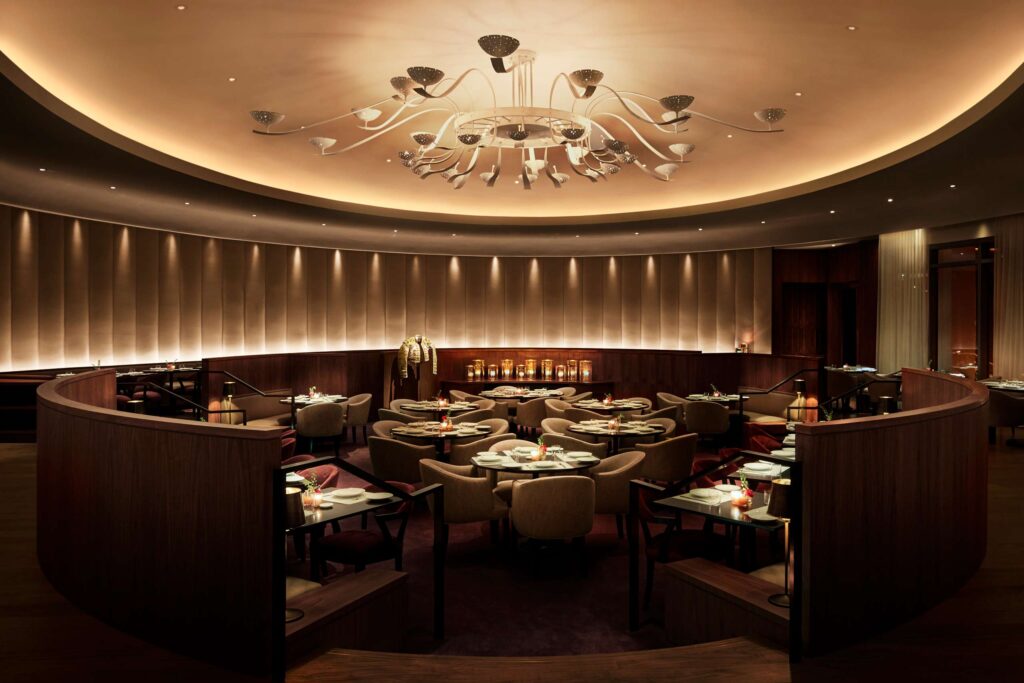
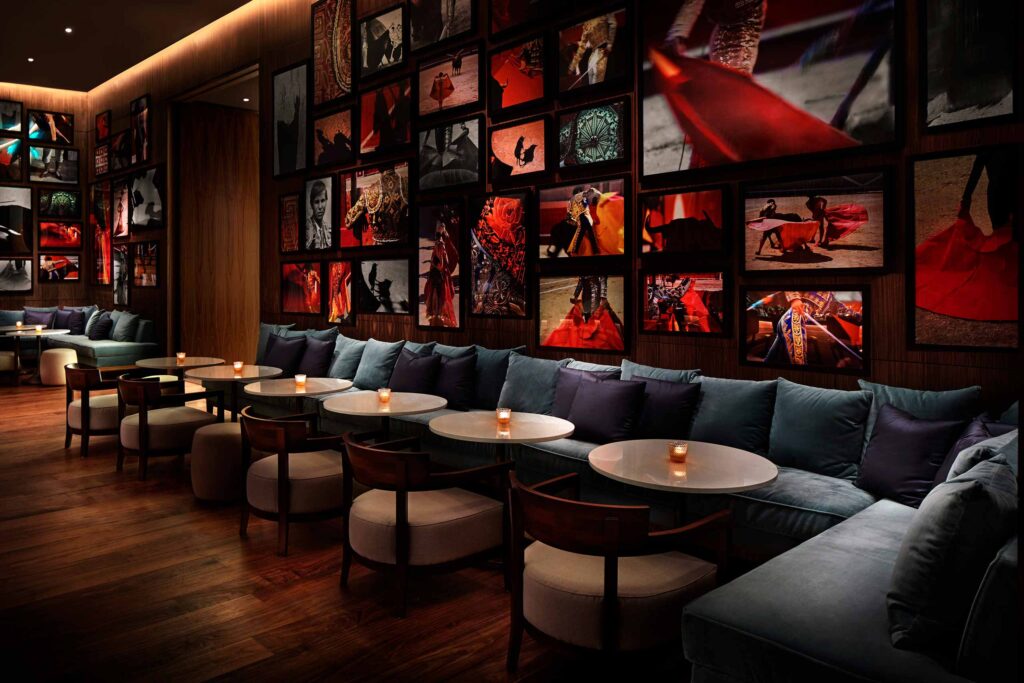
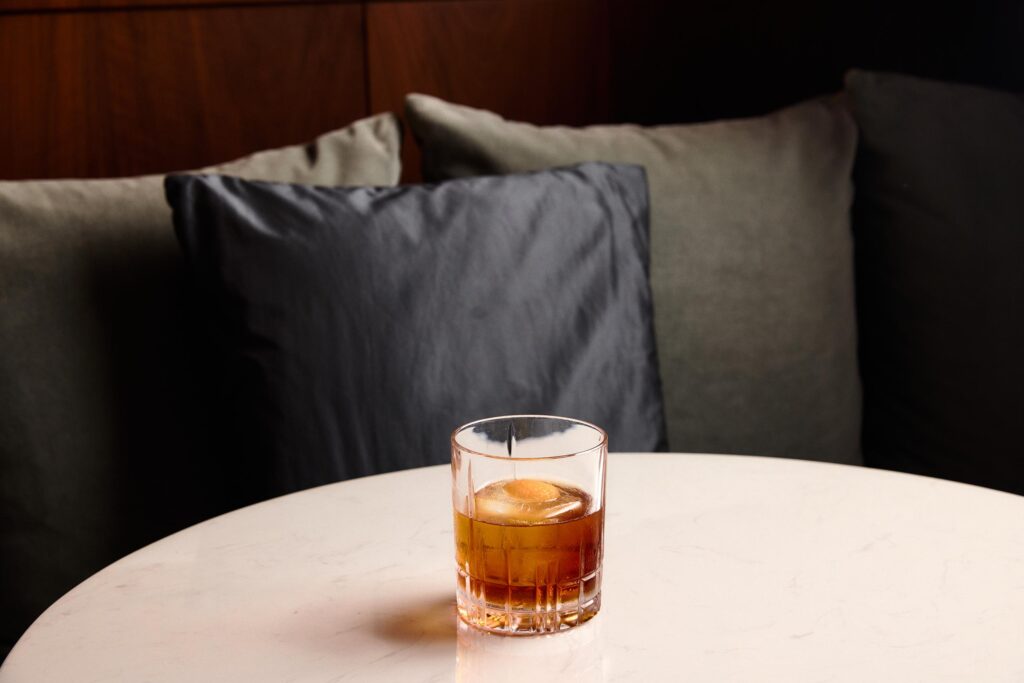
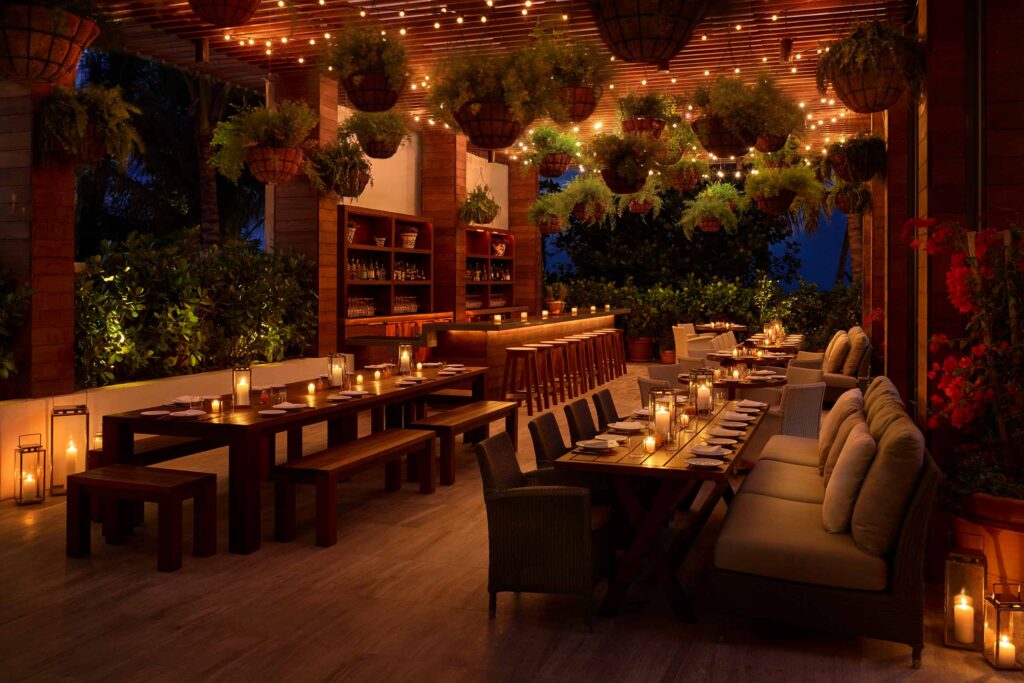
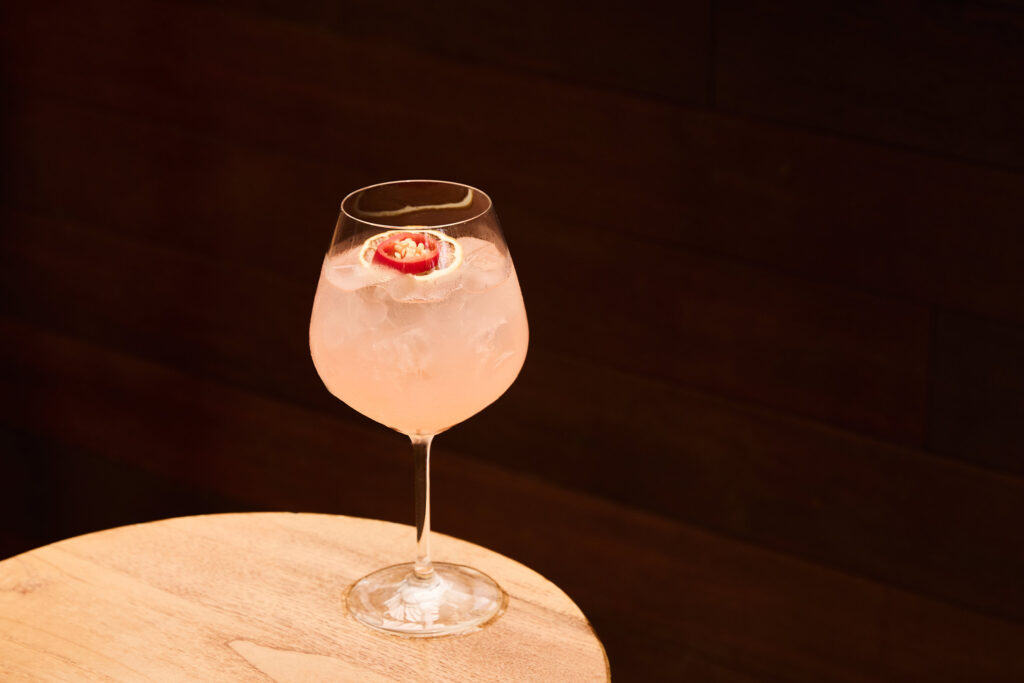
What does it mean to you to share both African American and Native Cherokee flavours through your cooking and how do you do so?
It means celebrating my roots and sharing the food I grew up eating at home. African American cooking was the heart of our kitchen – slow-cooked collard greens, crispy fried chicken, cornbread in a cast iron skillet, and sweet potato pie on the counter. Those meals were about love, survival, and community.
At the same time, I was also surrounded by Cherokee traditions and ingredients like corn, beans, squash, and smoked meats that reflect a deep respect for the land. I bring both together in my cooking, blending bold flavours and ancestral techniques in a way that feels both personal and universal. Whether I’m in a professional kitchen or cooking at home, every dish tells part of my story.
How, if at all, do you think the restaurant industry has changed since you got your start? Are women and people of colour more welcome than before?
The industry has definitely started to shift. When I first got into professional kitchens, it was rare to see women – especially women of colour – in leadership roles. There was this unspoken expectation that you had to prove yourself twice as hard just to be seen. Now, there’s more awareness, more conversation, and more intentional effort to diversify kitchens and highlight different voices.
I see more women stepping into executive roles, more chefs of colour getting recognition for their work, and more openness to different cuisines and cultural narratives. Progress is happening, but we need to keep pushing to make sure it’s not just a trend. It has to be a real shift in culture.
In your opinion, what improvements are still left to make for the industry to be more inclusive?
We’ve made progress, but there’s still a long way to go. Inclusion isn’t just about who’s in the room. It’s about who’s being heard, supported, and promoted. We need more mentorship and leadership opportunities for women, people of colour, and Indigenous chefs, not just in the kitchen, but in ownership, media, and decision-making roles.
Pay equity, work-life balance, and safer, more respectful kitchen environments also need to be part of the conversation. And when it comes to food, we have to move beyond trends and really honour the cultures behind the flavours. True inclusivity means creating space for all stories, not just the ones that are already popular or easy to sell. That kind of change takes intention, accountability, and a commitment to long-term growth.
What is it like to work with the EDITION brand, both in Miami and in Reykjavik, for the festival? How has the brand supported you and your career growth?
Working with the EDITION brand has been amazing because they really give me room to grow and challenge myself. At the Matador Room in Miami, they encourage me to bring all of my cultural influences into the kitchen and push boundaries with my cooking. It’s not just about making great food. It’s about telling a story and connecting with people.
Being part of the Reykjavik Food & Fun Festival was another huge step. EDITION trusted me to represent my heritage on an international stage, and that meant stepping out of my comfort zone – speaking to bigger crowds, adapting to new ingredients, and really pushing myself creatively. That support and encouragement have helped me become a stronger chef and leader, and I’m excited to keep growing with them.
Looking ahead to the coming year, what’s next for you?
With the exciting rejuvenation happening at the Matador Room, I’m really looking forward to a busy and successful season. My goal is to work closely with my EDITION team to make the restaurant even better than it is today, pushing creativity, quality, and the overall experience.
On a personal level, I’m focused on continuing my growth as a chef and leader – learning new techniques, taking on bigger challenges, and finding new ways to bring my cultural influences to life.
Photography courtesy of EDITION Hotels


